#I am sorry I took a while!
Explore tagged Tumblr posts
Text
|| Elena & Duncan ||
For Duncan, there had not been an issue of a shortage in a very, very long time - he had been on this earth for far too long to not plan way ahead and have a backup even for his backup. Very few things were of a major concern for an old undead creature aside from the one thing his entire unlife basically revolved around - blood. And that was something Duncan always made sure to have in a steady supply. So although with many donors available on a call, Duncan still made regular trips to the Greywood Hospital, for the blood packs supplied by a specialized department who took care that the residential vampires and even businesses catering to them were well supplied by clean, healthy blood to consume and on a regular basis too. It was the most legitimate way anyone in Greywood could get blood for consumption, as long as they were registered, able to be reached out to if needed and had proven that they were of a species in need of it with papers signed that they would not waste the precious donations for other purposes.
So, in essence, Duncan had going on his weekly shopping to the hospital with, essentially, vampire food stamps to spend it on. He would’ve found it funny if humor were still working on him. Since it didn’t, he just found it very convenient. There was no need to hide, no need to hunt, no need to charm a human to give up what kept them alive without a fuss. Truly a golden age for vampires in this town, save for the black plague when availability, although grim and depressing, was much more abundant.
There was another thing to look forward to - as much as an emotionless vampire could look forward to anything - on these weekly errands to the hospital. An acquaintance he’d made there, out of a nurse who works on the floor. To her, it would all seem like a very accidental story, how they first met and started chatting and how the vampire seemed very friendly and perhaps even pleasant to talk to while he was waiting for his request to be processed and her work was too slow and she had nothing better to do than to humor him. For Duncan, it was a way to keep an eye on the family. Not progenies or alike, but the real family, the mortal one that descended from the numerous branches Duncan was the ancestor of. By now, he knew her schedule and had picked times to come in when she would be around in her night shifts. He had no specific interest in her but instead in her son, who through Roman carried still the Creeds’ ancestral bloodline within the Baudelaire branch.
So there Duncan was, in his usual old-fashioned best, occupying the same seat in the waiting room he always would as he waited for his name to be called, knowing that sooner or later Elena, the mother of a Baudelaire, would be passing down the hallway and maybe notice him and come up for a chat.

@elena-delacruz
#::DuncanxElena#blood mention tw#pandemic mention tw#I am sorry I took a while!#I hope this is okay!#don't worry about matching the length!
1 note
·
View note
Text

[right to left]
finally finished This Wip from Ever ago and so now i ask you ever look into another dudes eyes and suddenly want to do whatever he wants
#xmen#xmen comics#cherik#professor x#magneto#charles xavier#erik lehnsherr#erik magnus lehnsherr#the kids are here too but i aint taggin them vaeLKEVJKLJ#snap sketches#posting this now and not obsessing over the details i need to SLEEP#please click/tap and zoom to read anything im sorry theres so much dialogue#i thought i was gonna finish this sooner but i went grocery shopping with my bro today and that took longer than expected !!!!#ALSO CHAT. if youre up to date on My Lore via my tags ... my prof's lettin me submit my assignment ... life's so good...#speaking of life being good i was giggling like stupid while drawing this . i named it 'this is stupid' and i stand by that#this is so unserious im gonna make myself throw up ITS SO CORNY i make myself sick with what i draw <- will continue to do this#only god knows if this is even how that power of his works i just saw an opportunity and ran with it#the trick here is he doesnt even have to use any 'power' he can just do that to charles by default#however im making them be obnoxious about it. i am making them obnoxious over dramatic grandpas because i can#my only crime is loving the utter cheese and corniness of the 60s comics like God. anyways bye !!!!!!!#maybe one day ill finish that other comic i sketched for this weekend but i fear i wont have time to so next weekend me thinks ....#for now i hope you all enjoy this. goofy as hell nonsense jLAKJVEKLVJ
1K notes
·
View notes
Text
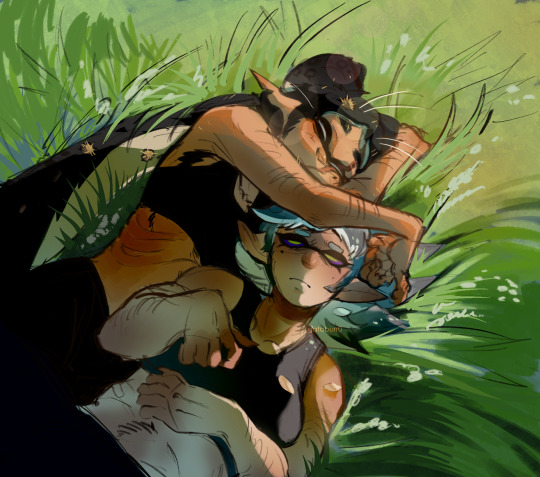
#art#fanart#my art#original art#Splatoon#Splatoon au#Splatoon fuzzy au#fuzzy au#Splatoon Callie#Callie Splatoon#Callie cuttlefish#Callie#Splatoon Marie#Marie Splatoon#Marie cuttlefish#Marie#fluff#comfort#im trying to get my mood back up and this has seemed to help in a weird way?#im so attached to these two. their story (especially Callie’s) is so sad but so happy at the same time?#anyway have this thing. listening to Mac Demarco while drawing it was certainly a great experience#i totally didn’t cry#it takes me longer to figure out a stupid caption for every one of my posts than drawing#genuinely#im about to post something that took me 10 minutes and I’m gonna post it and just stare into the screen like an idiot trying to come up w#a caption#sorry it’s 5 am
752 notes
·
View notes
Text





A bit ago I was looking through the g1 timeline wiki and I saw that Skyfire and Starscream now had a 5 million year old age gap and I was like oh? That makes their dynamic so much more interesting especially how innocent he was portrayed in fire in the sky, I also wanted to share my hc on why Skyfire never brought up Starscream again
#fun fact in the marvel comics it was skyfire that was created on earth and the dinobots that were deactivated for millions of years#the marvel comics released alongside the cartoon so thats pretty funny#ik they dont have ages but the concepts are interesting 👀#i dunno i like toxic skystar cause if starscream treats his trine like that I can only imagine how he treated skyfire#like he did look for him but from how fast starscream threw him away did he really like him or did he only like the idea of what skyfire is#I think starscream did think he cared for him in his own way but not in a way skyfire would want to be cared for#after all he did tell skyfire that he would be the second in command when he took over#I think#ehh dont quote me on that its been a while since i watched that episode#I do think Starscream would be like this without Megatron#he deserves the credit for all of the hard work he puts into being a ruthless war criminal smh#am I really going to continue the trend of creating long comics for all of my art that get over 1k notes?#prolly not but I was drawing this comic before I posted that haha#transformers#transformers fanart#transformers g1#skyfire#ratchet#starscream#jetfire#jetstar#skystar#mentioned at least#maccadams#edit I colored in the remaining panels they bothered me too much 😭#and i also changed my caption sorry for editing so much rip
382 notes
·
View notes
Text

tiny creature of steel.. hi inscryption tumblr community what did i miss
(og image under the cut!)

#inscryption#inscryption fanart#inscryption p03#my art#(i got too lazy to draw the back reflection im sorry)#hey guys!! guess whos back again :3#sorry for the inactivity!! i took a break for a while due to some things happening irl but i am back again ^-^#yes that is an ultrakill reference i'll see myself out now
341 notes
·
View notes
Text
patience being tested. being forced by a bizarre unfortunate situation to adhere to university requirement technicality by taking this simple basic elementary "introduction to environmental history" class.
this class is from facilitators/program which do, like, "history of the American frontier" or "history of fishing and hunting" and still basically subscribe to that old-school twentieth-century idealization and celebration of characters like Teddy Roosevelt and reverence for a mythical arc-of-history-bent-towards-justice narrative of the often-clumsy but ultimately-benevolent US federal government and its mission to "save nature" through the miracle of "sustained yield," while heroic federal land management agencies and "heritage" institutions lead to way, staffed by exceptional individuals (appeals to nostalgia for the frontier and an imagined landscape of the American West; ego-stroking appeals to flattering self-image that center the environmentalist or academic). where they invoke, y'know, ideas like "ecology is important because don't you enjoy cross-country skiing in The Woods with your niece and nephew? don't you like hunting and fishing?" which makes it feel like a time capsule of appeals and discourses from the 1970s. and it invokes concept of "untouched wilderness" (while eliding scale of historical Indigenous environmental relationships and current ongoing colonial violence/extractivism). but just ever-so-slightly updated with a little bit of chic twenty-first-century flair like a superficial land acknowledgement or a reference to "labor histories" or "history from below," which is extra aggravating when the old ideologies/institutions are still in power but they're muddying the water and diluting the language/frameworks (it's been strange, watching words like "multispecies" and "Anthropocene" over the years slowly but surely show-up on the posters, fliers, course descriptions, by now even appearing adjacent to the agri-business and resource extraction feeder programs, like a recuperation or appropriation.) even from a humanities angle, it's still, they're talking at me like "You probably didn't know this, but environmental history is actually pretty entangled with political and social events. In fact, we can synthesize sources and glean environmental info from wacky places like workers' rolls in factories, ship's logs, and poetry from the era." and i'm nodding like YEP.
the first homework assignment is respond to this: "Define and describe 'the Anthropocene'. Do you think 'the Anthropocene' is a useful concept? Why or why not?" Respond in 300 words.
so for fun, right now in class, going to see how fast i can pull up discussion of Anthropocene-as-concept solely from my old posts on this microblogging site.
---
ok, found some
---
I think that the danger in any universal narrative or epoch or principle is exactly that it can itself become a colonizing force. [...] I’m suspicious of the Anthropocene as concept for the very reason that it subsumes so many peoples, nations, histories, geographies, political orders. For that reason, I think ideas like the Anthropocene can be a useful short-hand for a cluster of tangible things going on with the Earth at the moment, but we have to be very careful about how fluid and dynamic ideas become concretized into hegemonic principles in the hands of researchers, policymakers, and politicians. There’s so much diversity in histories and experiences and environmental realities even between relatively linked geographies here in Canada [...]. Imagine what happens when we try to do that on a global scale - and a lot of euro-western Anthropocene, climate change and resilience research risks doing that - eliding local specificities and appropriating knowledge to serve a broader euro-western narrative without attending to the inherent colonial and imperial realities of science and policy processes, or even attending to the ways that colonial capitalist expansion has created these environmental crises to begin with. While we, as a collective humanity, are struggling with the realities of the Anthropocene, it is dangerous to erase the specific histories, power-relations, political orders that created the crisis to begin with. So, I’m glad that a robust critique of the Anthropocene as a concept is emerging.
Text by: Words of Zoe Todd, as interviewed and transcribed by Caroline Picard. “The Future is Elastic (But it Depends): An Interview with Zoe Todd.” 23 August 2016.
---
---
---
The Great Acceleration is the latest in a series of human-driven planetary changes that constitute what a rising chorus of scientists, social scientists, and humanists have labeled the Anthropocene - a new Age of Humans. [...] But what the Anthropocene label masks, and what the litany of graphs documenting the Great Acceleration hide, is a history of racial oppression and violence, along with wealth inequality, that has built and sustained engines of economic growth and consumption over the last four centuries. [...] The plantation, Sidney Mintz long ago observed, was a “synthesis of field and factory,” an agro-industrial system of enterprise [...]. Plantation legacies, along with accompanying strategies of survival and resistance, dwell in the racialized geographies of the United States’ and Brazil’s prison systems. They surface in the inequitable toxic burdens experienced by impoverished communities of color in places like Cancer Alley, an industrial corridor of petrochemical plants running along the Mississippi River from New Orleans to Baton Rouge, where cotton was once king. And they appear in patterns of foreign direct investment and debt servitude that structure many land deals in the Caribbean, Brazil, and sub-Saharan Africa [...]. [C]limatologists and global change scientists from the University of London, propose instead 1610 as a date for the golden spike of the Anthropocene. The date marked a detectable global dip in carbon dioxide concentrations, precipitated, they argue, by the death of nearly 50 million indigenous human inhabitants [...]. The degradation of soils in the tobacco and cotton-growing regions in the American South, or in the sugarcane growing fields of many Caribbean islands, for example, was a consequence of an economic and social system that inflicted violence upon the land and the people enslaved to work it. Such violent histories are not so readily evident in genealogies that date the Anthropocene’s emergence to the Neolithic Revolution 12,000 years ago, the onset of Europe’s industrial revolution circa 1800, or the Trinity nuclear test of 1945. Sugarcane plantations were already prevalent throughout the Mediterranean basin during the late middle ages. But it was during the early modern era, and specifically in the Caribbean, where the intersection of emerging proto-capitalist economic models based on migratory forced labor (first indentured servitude, and later slavery), intensive land usage, globalized commerce, and colonial regimes sustained on the basis of relentless racialized violence, gave rise to the transformative models of plantations that reshaped the lives and livelihoods of human and non-human beings on a planetary scale. [...] We might, following the lead of science studies scholar Donna Haraway and anthropologist Anna Tsing, more aptly designate this era the Plantationocene. [...] It is also an invitation to see, in the words of geographer Laura Pulido, “the Anthropocene as a racial process,” one that has and will continue to produce “racially uneven vulnerability and death." [...] And how have such material transformations sustained global flows of knowledge and capital that continue to reproduce the plantation in enduring ways?
Text by: Sophie Sapp Moore, Monique Allewaert, Pablo F. Gomez, and Gregg Mitman. "Plantation Legacies." Edge Effects. 22 January 2019. Updated 15 May 2021. [Bold emphasis added by me.]
---
---
---
Geologists and other scientists will fight over [the definition of the beginning start-date of the Anthropocene] in scientific language, seeking traces of carbon dioxide that index the worst offenses of European empire which rent and violated the flesh, bodies, and governance structures of Indigenous and other sovereign peoples in the name of gold, lumber, trade, land, and power. [...] The stories we tell about the origins of the Anthropocene implicate how we understand the relations we have with our surrounds. In other words, the naming of the Anthropocene epoch and its start date have implications not just for how we understand the world, but this understanding will have material consequences, consequences that affect body and land.
Text by: Heather Davis and Zoe Todd. On the Importance of a Date, or Decolonizing the Anthropocene. ACME An International Journal for Critical Geographies. December 2017. [Bold emphasis added by me.]
---
---
---
From Aime and Suzanne Cesaire, C. L. R. James, Claudia Jones, Eduoard Glissant, through Sylvia Wynter, Christina Sharpe, and so many others, critical anticolonial and race theory has been written from the specific histories that marked the Black Atlantic. [...] Glissant also reminds us, secondly, of how cunning the absorptive powers of [...] liberal capitalism are - how quickly specific relations are remade as relations-erasing universal abstractions. [...] This absorptive, relations-erasing universalism is especially apparent in some contemporary discourses of […] liberalism and climate collapse - what some call the Anthropocene - especially those that anchor the crisis in a general Human calamity which, as Sylvia Wynter has noted, is merely the name of an overdetermined and specific [White] European man. […] [T]he condition of creating this new common European world was the destruction of a multitude of existing black and brown worlds. The tsunami of colonialism was not seen as affecting humanity, but [...] these specific people. They were specific - what happened to them may have been necessary, regrettable, intentional, accidental - but it is always them. It is only when these ancestral histories became present for some, for those who had long benefitted from the dispossession [...], that suddenly the problem is all of us, as human catastrophe.
Text by: Elizabeth Povinelli. “The Ancestral Present of Oceanic Illusions: Connected and Differentiated in Late Toxic Liberalism.” e-flux Journal Issue #112. October 2020.
---
The narrative arc [of White "liberal humanism"] [...] is often told as a kind of European coming-of-age story. […] The Anthropocene discourse follows the same coming-of-age [...] script, searching for a material origin story that would explain the newly identified trajectory of the Anthropos […]. Sylvia Wynter, W.E.B. DuBois, and Achille Mbembe all showed how that genealogy of [White subjecthood] was [...] articulated through sixteenth- through nineteenth-century [historiographies and discourses] in the context of colonialism, [...] as well as forming the material praxis of their rearrangement (through mining, ecological rearrangements and extractions, and forms of geologic displacements such as plantations, dams, fertilizers, crops, and introduction of “alien” animals). […] As Wynter (2000) commented, “The degradation of concrete humans, that was/is the price of empire, of the kind of [Eurocentric epistemology] that underlies it” (154).
Text by: Kathryn Yusoff. “The Inhumanities.” Annals of the American Association of Geographers, Volume 11, Issue 3. November 2020.
---
---
---
As Yarimar Bonilla suggests in regard to post-Irma-and-Maria Puerto Rico, “vulnerability is not simply a product of natural conditions; it is a political state and a colonial condition.” Many in the Caribbean therefore speak about the coloniality of disaster, and the unnaturalness of these “natural” disasters [...]. Others describe this temporality by shifting [...] toward an idea of the Plantationocene [...]. As Moore and her colleagues write, “Plantation worlds, both past and present, offer a powerful reminder that environmental problems cannot be decoupled from histories of colonialism, capitalism, and racism that have made some human beings more vulnerable [...].” [W]e see that contemporary uneven socioecologies associated with the rise of the industrial world ["the Anthropocene"] are based [...] also on the racialized denial and foreshortening of life for the sacrificial majority of black, brown, and Indigenous people and their relegation to the “sacrifice zones” of extractive industry. [...] [A]ny appropriate response to the contemporary climate emergency must first appreciate its foundations in the past history of the violent, coercive, transatlantic system of plantation slavery; in the present global uneven development, antiblackness, and border regimes that shape human vulnerability [...] that continues to influence who has access to resources, safety, and preferable ecologies [...] and who will be relegated to the “plantation archipelagoes” (as Sylvia Wynter called them) [...].
Text by: Mimi Sheller. “Thinking Beyond Coloniality: Toward Radical Caribbean Futures.” Small Axe (2021), 25 (2 (65)), pages 169-170. Published 1 July 2021. [Bold emphasis added by me.]
---
---
---
Indigenous genocide and removal from land and enslavement are prerequisites for power becoming operationalized in premodernity [...]; it was/is a means to operationalize extraction (therefore race should be considered as foundational rather than as periphery to the production of those structures and of global space). [...] Wynter suggests that we […] consider 1452 as the beginning of the New World, as African slaves are put to work on the first plantations on the Portuguese island of Madeira, initiating the “sugar-slave” complex - a massive replantation of ecologies and forced relocation of people […]. Wynter argues that the invention of the figure of Man in 1492 as the Portuguese [and Spanish] travel to the Americas instigates at the same time “a refiguring of humanness” in the idea of race. [...] The natal moment of the 1800 Industrial Revolution, […] [apparently] locates Anthropocene origination in […] the "new" metabolisms of technology and matter enabled by the combination of fossil fuels, new engines, and the world as market. […] The racialization of epistemologies of life and nonlife is important to note here […]. While [this industrialization in the nineteenth century] […] undoubtedly transformed the atmosphere with […] coal, the creation of another kind of weather had already established its salient forms in the mine and on the plantation. Paying attention to the prehistory of capital and its bodily labor, both within coal cultures and on plantations that literally put “sugar in the bowl” (as Nina Simone sings) […]. The new modes of material accumulation and production in the Industrial Revolution are relational to and dependent on their preproductive forms in slavery […]. In 1833, Parliament finally abolished slavery in the British Caribbean, and the taxpayer payout of £20 million in “compensation” [paid by the government to slave owners for their lost "property"] built the material, geophysical (railways, mines, factories), and imperial infrastructures of Britain and its colonial enterprises and empire. [...] A significant proportion of funds were invested in the railway system connecting London and Birmingham (home of cotton production and […] manufacturing for plantations), Cambridge and Oxford, and Wales and the Midlands (for coal). Insurance companies flourished [...]. The slave-sugar-coal nexus both substantially enriched Britain and made it possible for it to transition into a colonial industrialized power […]. The slave trade […] fashioned the economic conditions (and institutions, such as the insurance and finance industries) for industrialization.
Text by: Kathryn Yusoff. "White Utopia/Black Inferno: Life on a Geologic Spike". e-flux Journal Issue #97. February 2019. [Bold emphasis added by me.]
#sorry for being mean#instructor makes podcasts about cowboys HELP ME#and he recently won a New Business award for his startup magazine covering Democrat party politics in local area HELP#so hes constantly performing this like dance between new hip beerfest winebar coolness and oldfashioned masculinity#but hes in charge of the certificate program so i have to just shut up and keep my head down for approximately one year#his email address is almost identical to mine and invokes enviro history terms but i made mine long before when i was ten years old#so i could log in to fieldherpforum dot com to talk about enviro history of distribution range changes in local reptiles and amphibians#sir if you read my blog then i apologize ive had a long year#and i cant do anything to escape i am disabled i am constantly sick im working fulltime i have NO family i have NO resources#i took all of this schools graduate level enviro history courses and seminars years ago and ran the geography and enviro hist club#but then left in final semester because sudden hospitalization and crippled and disabled which led to homelessness#which means that as far as any profession or school is concerned im nobody im a retail employee#i was doing conference paper revisions while sleeping on concrete vomiting walking around on my cane to find outdoor wifi#and im not kidding the MONTH i got back into a house and was like ok going back to finish the semester the school had#put my whole degree program and department in moratorium from lack of funding#and so required starting some stuff from scratch and now feel like a hostage with debt or worsening health that could pounce any moment#to even get back in current program i was working sixteen hours a day to pay old library fines and had to delicately back out of workplace#where manager was straight up violently physically abusive to her vulnerable employees and threatened retaliation#like an emotional torturer the likes of which i thought existed only in cartoons#and the week i filed for student aid a massive storm had knocked out electricity for days and i was clearing fallen tree debris#and then sitting in the dark in my room between job shifts no music no phone no food with my fingers crossed and i consider it a miracle#sorry dont mean to dramatize or draw attention to myself#so actually im happy you and i are alive
134 notes
·
View notes
Text

「 Thiollier 」
#venneeece#my art#illustration#art#artwork#thiollier#elden ring#hey long time no art here#this is my first fully colored piece in a while#thank you for staying and for your support :)#sorry for my disappearance#the flowers took half of my lifespan ahahha#it's my friend's fault I gotten into this :')#and am slowly invested
305 notes
·
View notes
Text
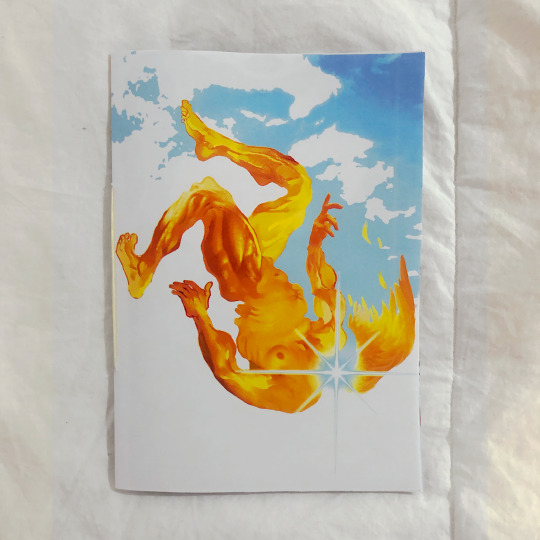
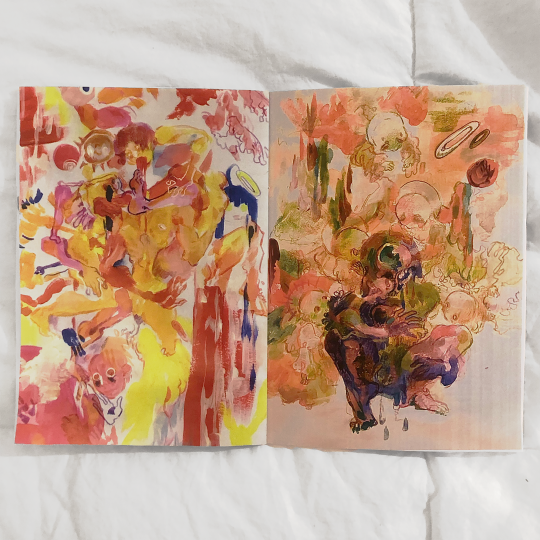
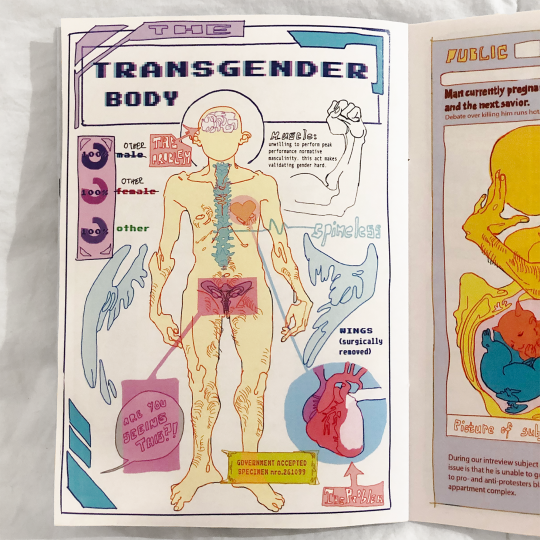
You can now buy my zine Mutilation grindset in my etsy store!!
It includes comics, essays and more. Many liked classics from me and also plenty new stuff only included in this zine. Read all the specifics in the item listing. Thank you for your support!
>>>link to store<<<
#transgender#comic#zine#sorry this took a long while... had to learn how etsy works and try mailing etc. very exited to share this one!!!#i've worked on this a lot this summer. it feels like a really good start to what i aim to do with art and my output.#tried to keep it affordable since it is my first zine and i am still learning.#if you have any guestions. ask away. i'm cleaning my ask box next#<3#also keep in mind i'm going to start sending these next monday (13th)
533 notes
·
View notes
Note
Just wanted to say that your Wortox is my absolute favourite Wortox to ever exist. Hes canon to me ❤️
AWWAAA THANK YOU

#asks#sorry this took a while to answer I like to keep some asks to look at occasionally#I am very glad you think so!#love your art!
96 notes
·
View notes
Note
reeding your Six ear backstory I'm curious on what the jttw gang thought of him? where they like:
"that monkey looks a lot like you"
SWK: yeeAhh how much of a coincidence O﹏o
hahah essentially!


Tang: Why did he look like you?!??
Monkey: No idea (lie), but I am flattered! Not happy about everything else though.
it was a very "Fuck You. Random Chimp Event 🫵" moment because to the pilgrims, Six seemingly came out of nowhere and took Monkey's place after he was banished. later on they thought they had him back but it was an imposter! I'd imagine it was Sandy & Horsie who were suspicious of "Monkey", because Pigsy & Tripitaka were thinking of him as being much better than before, except it isn't really Monkey or Stick and neither were being aggravatingly annoying or frustratingly aggressive!!
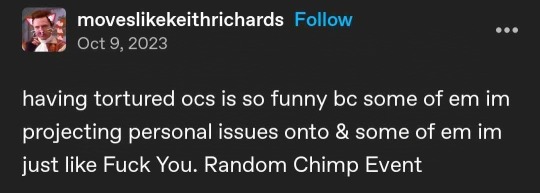
Monkey only realised what Six was when he was just about to destroy him. with the No Killing Rule by Tripitaka, and Buddha & Lin's sympathy for him 500 years ago, he gives it a second thought to not kill this guy, who to his understanding is basically just a younger version of himself under different circumstances. in a way maybe it would've been like killing himself, or at least these negative aspects within that manifested to ruin his own life, metaphorical &/ literal self-sabotaging & harm if you will. because "Six" was initially pushed away & buried to the back of his mind, but bottling up ruins you, and that's exactly what almost came to be
so he does it again, but this time with a positive outlook and hope this six-eared macaque will understand that what he did was wrong during timeout. just as Buddha did for him once!
there isn't much to think of for the others since it was all so chaotic & confusing. one moment Monkey killed a bunch of guys and claims he didn't, and after being banished by Tripitaka for "lying & murder", he came back to apologise because apparently he did kill people! but it turns out no, he didn't, because that was the six-eared macaque who framed him, stole his identity, & almost got away with their luggage if it weren't for the real Sun Wukong! I don't think Monkey even tells/confirms to anyone about the fact that technically he created Six, so this is all his fault for not talking about his feelings 5 years ago, and he's still not going to talk about this maybe after 1,000 years because it's just so out of the blue!
Pigsy assumes that was just a rogue hair clone, he teases how more pleasant & tolerable Six was compared to the original, and prefers a quiet Stick. this earns him a bonk in the head
Tripitaka hopes that Monkey keeps his promise to free Six in 500 years & give a chance to redeem himself like he has for him. he's glad his youngest disciple didn't kill the specious macaque & is being considerate of other's feelings
Sandy was absolutely furious about fighting his own shadow, as Six borrowed it to match his prowess when they battled. I'd think he has ideas of his origin but it remains a quiet understanding and unspoken secret between him & Monkey
Horsie prefers the original and did not like Six even when he was in disguise. I imagine he instantly sensed it wasn't his friend but couldn't understand what was different. the vibes were just off but again, didn't say anything
and so after that kerfuffle, they'll carry on their journey like nothing happened to the next episode!
#im sorry this took a while to answer i wanted to draw something and am preparing for college (´-﹏-`;)#suicide mention#self harm mention#the monkey king#the monkey king 2023#the monkey king netflix#tmk23 monkey#monkey king#sun wukong#tmk23 stick#ruyi jingu bang#tmk23 pigsy#zhu bajie#tmk23 sandy#sha wujing#tmk23 horsie#bai longma#tmk23 tang#tang sanzang#tmk23 six#six eared macaque#yeah safe draws stuff#yeah safe answers stuff
85 notes
·
View notes
Text
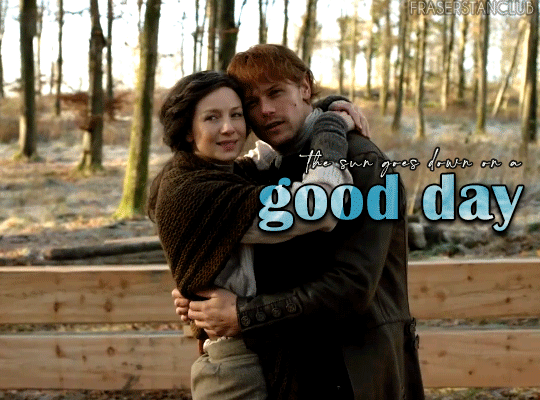
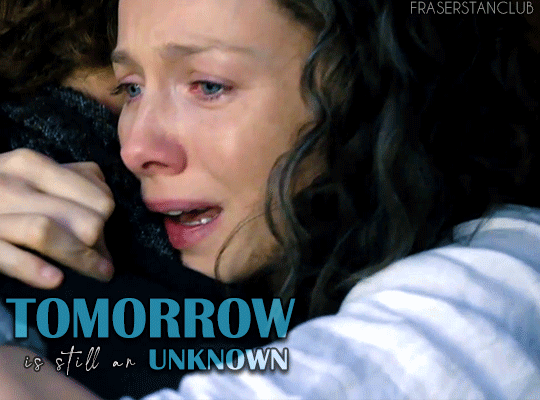
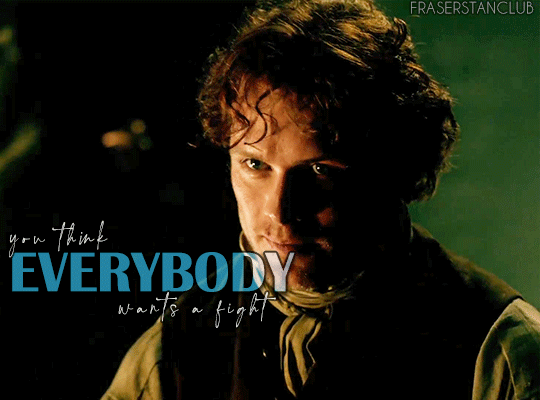
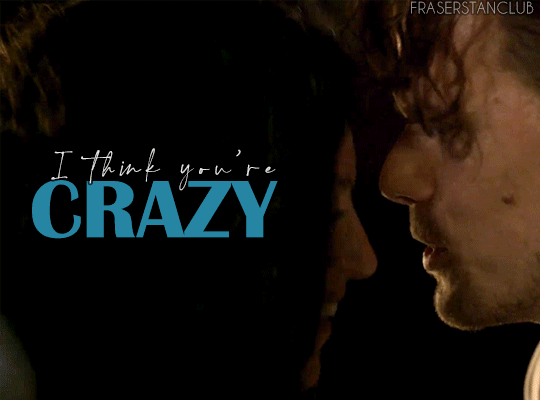
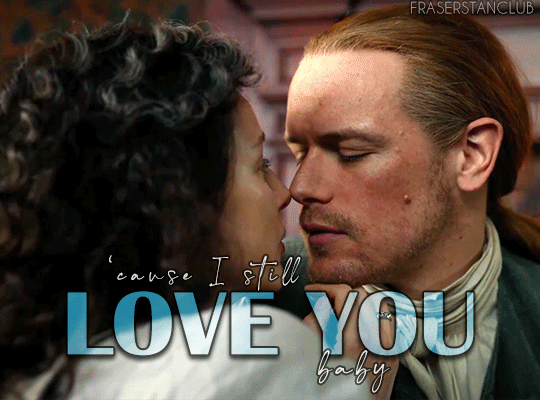
don't fade away never fade
happy birthday @eddiediaaz!
#outlander#outlanderedit#perioddramasource#jamieclaire#jamie x claire#taylor swift#taylornation#ts lyrics#userelizabeth#useremsi#userhayf#userfish#userkayjay#userteresa#usersteen#I AM SO SORRY IT TOOK SO LONG ALIE!#life loves getting in the way of fun stuff adgkjahgfd#HAPPIEST DAY OF THE BIRTH BESTIE!#also while i dont listen to TS myself#literally ANY song of hers is jamieclaire coded#i hope i got this one right gnfjgjfdghs#my stuffs
189 notes
·
View notes
Note
🎶it would be so awesome…it would be so cool…🎶 if you could write headcannons with sniper and scout and a reader that likes to collect rocks, feathers and animal bones? I’m big into that (creature energy strikes again), whenever I go on walks I always find something new, and then treat bones with hydrogen peroxide to clean them and turn them white again when I get home. Totally cool if you’re not cool with it, but thank you a bunch if you do consider it! (Also if possible, a male reader would be awesome, but I’m totally ok with gn)
Scout and Sniper with a Boyfriend Who Collects Rocks, Feathers, and Bones
Scout
- He doesn’t really get it at first. I mean, why would you want a bunch of rocks? You can find those anywhere. The feathers he kinda understands, but he gets a little squeamish about the bones. That’s a dead thing, he ain’t touching that.
- But regardless, he supports his boyfriend and his weird hobbies.
- Then when you start showing him more of your collection, he does start to respect it a lot more. He takes a closer look at all the crystals and stones, large shed feathers, and cleaned bones, and he starts to see just how beautiful each of your pieces. As he listens to you tell him the stories behind some of your finds, he starts to admire it rather than question it.
- Starts keeping an eye out for any neat rocks and feathers he could give you. Still won’t touch any bones though.
Sniper
- Just like you, he has his own collections of rocks, feathers, and bones. The moment he found out about your collecting hobby, he became incredibly eager to show you some of his own finds.
- He especially loves making necklaces from animal teeth, and will likely gift you a necklace made from the teeth he collects from his hunts.
- Plus, he loves seeing his boyfriend wearing something he made for him. He likes making you happy, but he also likes that you have something on you that very clearly shows that you’re “his”.
- Also sometimes gives you things he finds out in the wild, especially if it’s something he knows you’re going to be particularly fond of. He absolutely adores seeing the look on your handsome face when he gives you a feather from your favorite bird or a pristine skull.
#I love rock collecting too!!! maybe a little too much lol I’m running out of space for them#I hope you like this one anon!#sorry this took such a long while but I hope it was worth the wait#slowly but surely I am still writing :D#tf2#team fortress 2#fire-bugged#my writing#tf2 x reader#sniper x reader#scout x reader#male reader#scout tf2#sniper tf2
63 notes
·
View notes
Text


Finally finished a crochet mandala! Extremely happy with how it turned out and also I never want to do 500+ single crochets onto a steel hoop ever again.
Pattern is Apollo's Acknowledgement by Mark Roseboom, yarn is from Hobbii.
#crochet#my stuff#sorry to everyone who's had to see this already on Discord I am just very proud#also this took me forever primarily because I put it down for almost 6 months while procrastinating sewing in the ends#you know how it is
61 notes
·
View notes
Text
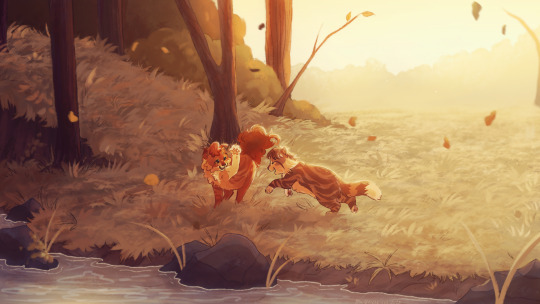
click for better quality!
it's this way! / squirrelpaw and leafpaw
#my art#do not copy trace or steal#squirrelflight#leafpool#warriors#warrior cats#wc#waca#wc art#IM SORRY THIS TOOK A WHILE sufferer of the stardew valley fixation and college u_u#IM GETTING MORE COMFORTABLE RENDERING which is cool but im still testing the limits of what works and what doesnt so .#REGARDLESS I AM SUPER DUPER STINKIN HAPPY WITH HOW THIS TURNED OUT#you are not immune to me constantly drawing leaf and squilf#i belieeeve theres one more coming and then ill be back to regular schedule#and that will mean either silly little/medium to low effort things or radio silence#did i tell yall i have an exam next week for algebra and i have no clue whats going on. its cobwebs in my brain#but other than that classes are going very well and i am enjoying second semester very much. i got to look at daphnia thru a microscope#today which is super fun :-) microbiology is so cool#one day ill plan my posts better since its midnight but i have a feeling yall are gonna eat this up#WHICH SPEAKING OF you guys have been so kind to me :'-) i read all of the nice things yall leave in the notes and it makes me so happy#i always get so nervous before i post and idk why#tomorrow i will put this up on my redbubble if i remember . i would do it now but it takes a while and i gotta get up#at six to study for a quiz at 8 </3 crying sobbing#anyway if the erins want to sponsor me my email is m- * sound of metal chair wham *#thats a joke unless they want to ANJHKFDGB
2K notes
·
View notes
Note
Hey there. I'm writing a story set in New York City and am not American. I have few characters, but most of them are arab or white. I can't help but feel a bit wrong about it, given that America is much more diverse than that, and NYC being an emblem of that. Do you think I should force myself to include more representation or should I just tell my story, and leave that more diverse cast to some other story I could write? I know this is a neverending debate and there are many opinions about it, but I've always agreed with everything you've said in matters of representation in fiction, and so I'd be curious to know your personal answer on it.
I'm a little confused by how you're using "representation," here. It sounds like you think representation = "randomly sticking BIPOC everywhere." I think when most people use that word, it means something more like "create an accurate or at least plausible depiction of a group or place." In actual New York, there are plenty of Middle Easterners and white people who live in relatively homogeneous small communities where they might only see someone of a different ethnicity on the subway. If your story is set in one of those communities -- and you do stick some random BIPOC in that subway scene, because that's plausible -- then it sounds like your characters might be an example of good representation.
(Note: if you're not writing something set in the real world, but it features human beings, it needs to represent humanity as a whole, unless there's a good in-world reason not to. But if it's our world? You can get specific.)
Here's the catch, tho: plausibility is relative. If you've absorbed some biases and haven't done enough research, then you might end up writing something that feels plausible to you, but which isn't actually representative or plausible to anyone else. The way to avoid this is to do the research and check (to the best of your ability) your biases. For example, you aren't American, I assume you've at least visited NYC? If not, you should. You can visit some of the communities I mentioned! You can eat in restaurants, visit mosques, have conversations with actual real people who are living the life you're writing about! If you don't have the time, money, or spoons to do that, there are other ways to do good research -- films and YT/Tiktok videos made by people from the communities in question, for example. But you'd need to watch a lot of them to get a good representative sample.
I recommend this book to all the writing students I've taught at Clarion, and other writer workshops: Writing the Other, by Nisi Shawl and Cynthia Ward. There's a particular part of it that seems relevant here, which is a kind of hierarchy of "appropriate" appropriation, I think first mentioned by Diantha Day Sprouse but included in Writing the Other. Basically it says that if you want to write about a culture that isn't your own, you can learn about that culture in one of several ways: a) You can be an Invader, and just go take whatever intellectual and artistic tidbits from that culture that you want, regardless of how damaging this might be to members of that group. Example: non-Indigenous people who write about actual secret practices, or who encourage the desecration of sacred places. b) You can be a Tourist, in which you're still mooching from that culture, but at least you're figuratively paying someone for it and accepting tidbits that the culture has chosen to sell. Example: getting a sensitivity reader. Or c) you can be an Invited Guest, who brings in as much as they take out, and who has formed relationships that are beneficial to all involved. Example: being part of an exchange program, both as a student and later as a host, and maintaining those friendships outside of the program.
The goal is to be an IG, but that isn't always possible. Tourist is still better than being an Invader. (...I feel like I'm leaving out a category. It's been a while since I read the book; any more recent readers want to check me here?) But the closer you can get to actually participating in that culture, the more your work will be informed by reality instead of biases or misinformation, and the more likely your work will read as plausible not just to you, but to your widest possible audience -- people familiar with the culture and people who aren't.
(I'm a little concerned about your phrasing of "force myself to include more representation," note. Why would that need to be a forced thing? A writer's goal should be to write something that feels lived-in and authentic to [if it's a real place] most people's experience -- not to meet some arbitrary standard, but because that's how you master immersion and characterization. If good immersion and characterization feel forced to you right now, that suggests you need more practice. I recommend writing short stories!)
#answered asks#long#sorry I took a while to reply#some asks require more nuanced replies#and I put this one in drafts because it was so long#then forgot it was there#and yeah I'm aware this might be a disingenuous ask#but I am choosing to treat it as good faith
158 notes
·
View notes
Text
In the Barrow, Part Two

< Prev | Next >
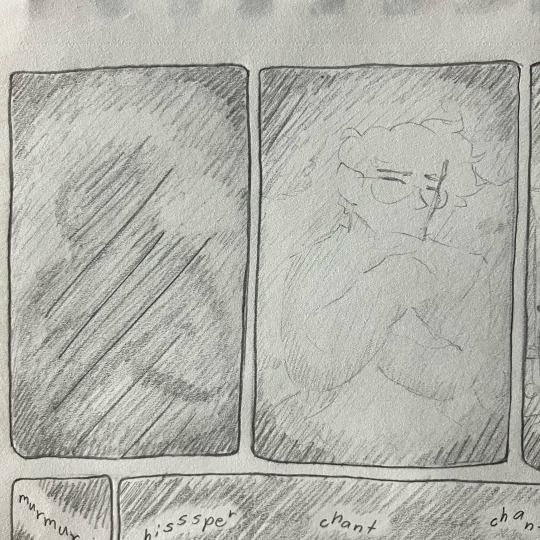
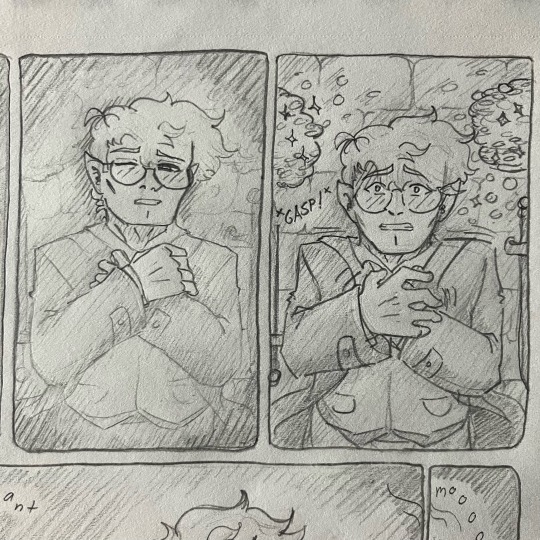
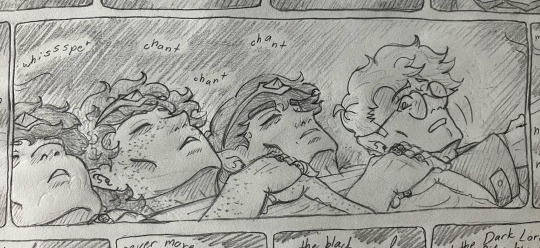
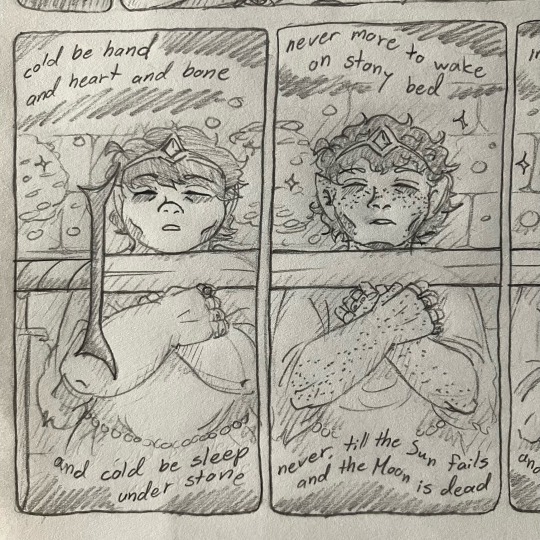

#frodo baggins#samwise gamgee#peregrin took#pippin#meriadoc brandybuck#merry#lord of the rings#lotr#my art#fig tree au#sorry for the delay on this one!#as you might imagine that fifth panel was HECK to draw#hmm yes i haven’t drawn much of anything in a while let’s change that by drawing THREE FACES IN THREE-QUARTERS VIEW UNDER THE CHIN#i am so smart yes i am precious
89 notes
·
View notes